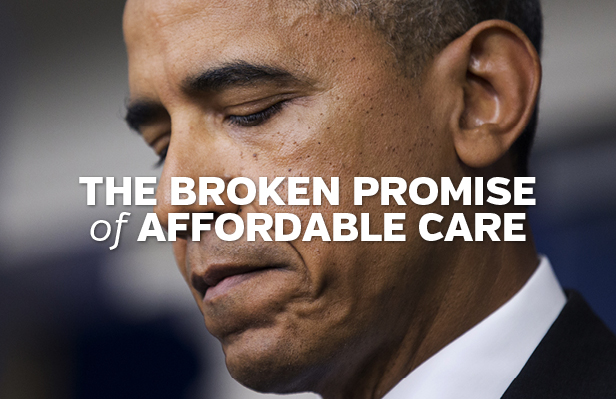Media

Celebrating Crummy Care
Midnight is the enrollment deadline for the hundreds of thousands of Pennsylvanians who want to remained insured through healthcare.gov.
To no one's surprise, the rush to enroll has led to another round of headaches for officials. Phone lines were reportedly overwhelmed with last minute shoppers on Monday, causing officials to record phone numbers for later callbacks.
The federal Department of Health and Human Services is placing a lot of pressure on folks to enroll so they can reach their modest goal of 10 million enrollees. Likewise, Governor Wolf is touting half a million “new” enrollees in Medicaid, a taxpayer-funded health insurance plan.
Both HHS and the governor are missing the point. Architects of the Affordable Care Act (ACA) defined success as making health care affordable and accessible. Now success is defined by how many health insurance cards are doled out, never mind if the insurance offered is too expensive or inconvenient to use.
Consider that a Medicaid patient in Philadelphia has to wait almost 50 days to see a dermatologist in Philadelphia. Why are we celebrating placing half a million people in a broken system?
Plus, we have no idea how many people actually gained insurance for the first time. Past government insurance expansions, like CHIP, tend to push people out of higher quality private insurance for “free” government insurance. Given this “crowd out” effect, we asked the Department of Human Services how many people are newly insured. They said they do not track new enrollees by previous health insurance status.
Pushing people out of their preferred plans isn't ACA's only problem. Exchange plans are seriously lacking in quality too. The Morning Call explains:
Many Lehigh Valley participants are finding they have to pick new insurance plans. That's because one-third of last year's 62 plans, including more than a dozen from Highmark Blue Shield, will soon cease to exist as the insurance industry moves toward coverage that shifts costs to consumers in the form of higher deductibles, co-pays and other out-of-pocket expenses.
There's a better way to work toward health care for all. Revoke regulations forcing people to pay for coverage they don't want (think maternity coverage for single men) and even the playing field between employer and individual health care. These simple changes will dramatically expand health insurance choices, leading to truly affordable care.